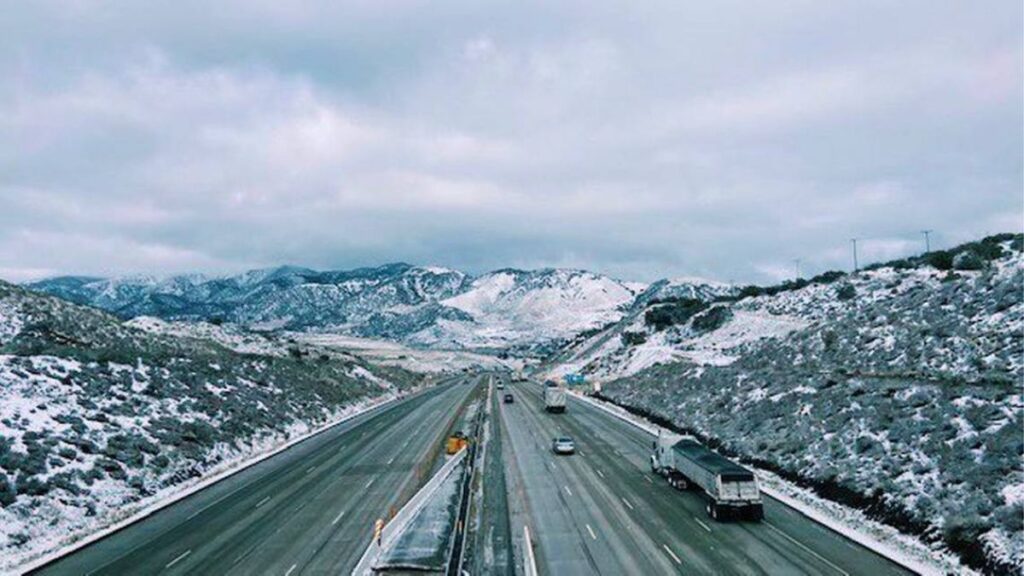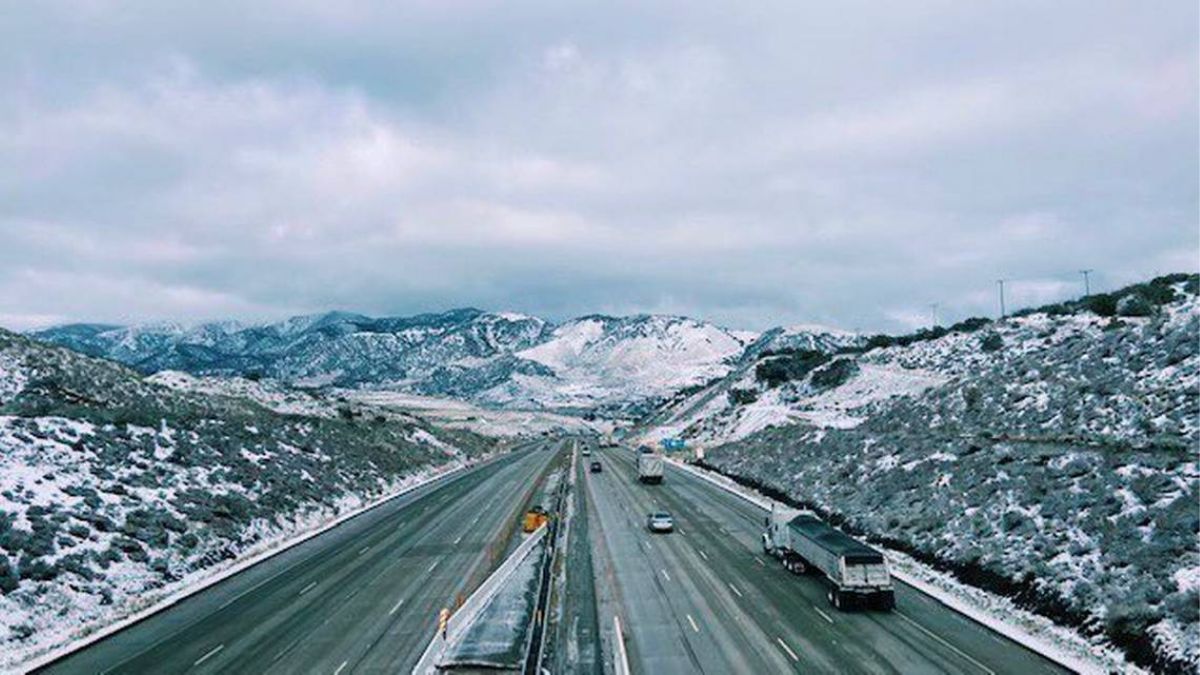When it comes to imagining California, images of palm trees, sunshine, and beaches often come to mind. However, California’s climate is incredibly diverse, and in certain regions, such as the Central Valley, winters can bring surprising weather patterns.
Let’s delve into the details and explore the question, “Does it snow in Fresno?” Find out about the winter climate of this vibrant city located in the heart of California’s Central Valley.
Does It Snow In Fresno?
While snow is not a common occurrence in Fresno, it does happen from time to time. The city sits at an elevation of approximately 300 feet (91 meters) above sea level, meaning the surrounding mountainous areas receive more snowfall.

However, due to Fresno’s location in the Central Valley, the occurrence of snowfall is relatively rare and often limited to specific weather events.
The Geography and Climate of Fresno
To understand the possibility of snow in Fresno, it is essential to grasp the city’s geography and climate. Fresno is located in the central portion of California’s San Joaquin Valley. This valley stretches for hundreds of miles between the Sierra Nevada Mountains to the east and the Coast Ranges to the west.
- Geography of Fresno
The valley’s geography plays a significant role in shaping Fresno’s weather patterns. The city covers an area of approximately 114 square miles (295 square kilometers) and is situated at an elevation of around 300 feet (91 meters) above sea level.
- Climate of Fresno
Fresno experiences a Mediterranean climate, which is characterized by hot, dry summers and mild, damp winters. The city enjoys an average of 300 sunny days per year, making it one of the sunniest places in the United States.
Summer temperatures in Fresno can be scorching, with average highs reaching the mid-90s to low 100s Fahrenheit. The region’s dry heat is attributed to its distance from the coast and the rain shadow effect caused by the Coast Ranges to the west, which block most of the marine influence.
Winters in Fresno are relatively mild compared to other parts of the United States. Average high temperatures during winter range from the mid-50s to low 60s Fahrenheit, while average lows drop to the mid-30s to low 40s Fahrenheit. Frost and occasional light freezes can occur during the winter months.
Mediterranean Climate
Fresno experiences a Mediterranean climate characterized by hot, dry summers and mild, damp winters. This climate is influenced by the Pacific Ocean, which brings cool marine air and moderates the temperatures throughout the year. However, the Mediterranean climate alone does not definitively answer whether snowfall occurs in Fresno.
Average Winter Temperatures
Does it snow in Fresno? In winter, Fresno experiences cooler temperatures compared to its scorching summers. The average high temperatures range from the mid-50s to the low 60s Fahrenheit.
While the average lows drop to the mid-30s to low 40s Fahrenheit. These temperatures, although not excessively cold, leave room for the possibility of snowfall under certain conditions.
Sierra Nevada Influence On Fresno Climate
The Sierra Nevada Mountains, located to the east of Fresno, significantly impact the city’s winter weather. These majestic peaks receive substantial snowfall during the winter months. These majestic mountains, known for their stunning peaks and pristine wilderness, rise to elevations over 14,000 feet.
It also attracts winter sports enthusiasts to nearby areas such as Yosemite National Park and Sierra Nevada ski resorts. Occasionally, Fresno experiences snowfall when weather systems bring moisture-laden air from the mountains into the valley.
During the winter months, the Sierra Nevada Mountains receive substantial amounts of snowfall. The high elevations and proximity to Pacific weather systems make this region a prime destination for winter sports enthusiasts, offering world-class skiing, snowboarding, and other snow-related activities.
The Sierra Nevada Mountains play a crucial role in shaping Fresno’s winter climate. As weather systems move across the Pacific Ocean, they encounter these mountains, causing them to rise and cool down. As a result, the moisture in the air condenses and falls as precipitation, which can manifest as rain or snow.
When a weather system brings moisture-laden air from the Sierra Nevada Mountains into the Central Valley, including Fresno, it increases the chances of snowfall in the city. Cold air masses, combined with the availability of moisture, create the conditions necessary for snow to occur.
However, it is important to note that Fresno’s proximity to the mountains does not guarantee consistent or significant snowfall in the city itself. The mountains act as a barrier, often trapping the coldest air and heaviest precipitation on their eastern slopes.
Overall, the influence of the Sierra Nevada Mountains on Fresno’s winter weather creates a dynamic and occasionally snow-filled environment. While snowfall may not be a common occurrence in the city, the mountains add a touch of winter charm to the region and offer winter sports and outdoor activities just a short distance away from Fresno.
Factors Influencing Snowfall
Several factors contribute to the likelihood of snowfall in Fresno. One crucial factor is the strength and duration of cold air masses. A robust cold front moving through the region increases the chances of snowfall in Fresno.
Another factor is the occurrence of precipitation. While cold temperatures are necessary for snow, it is equally important to have a source of moisture in the form of rain or snowfall.
Historic Snow Events
Fresno has experienced significant snow events in the past, though they are infrequent. One notable occurrence was the Great Christmas Snowstorm of 1988, when Fresno received over six inches of snow.
Another memorable snow event occurred in 2011, when Fresno received approximately two inches of snowfall, leading to school closures and a temporary transformation of the city into a winter wonderland.
Winter Activities in Fresno
When snowfall does grace Fresno, it provides residents and visitors with unique opportunities for winter activities. Locals often head to nearby mountainous regions to enjoy skiing, snowboarding, and snowshoeing.
Additionally, Fresno’s proximity to Yosemite National Park allows for winter hikes and breathtaking views of snow-covered landscapes.
Overview
So, does it snow in Fresno? While snowfall is not a regular occurrence in this Central Valley city, Fresno does experience occasional snow events, especially when influenced by weather systems originating in the Sierra Nevada Mountains.
The winter climate of Fresno is characterized by cool temperatures and the potential for sporadic snowfall, adding a touch of winter charm to this sunny region of California.
As residents and visitors in Fresno enjoy the diversity of the region’s weather patterns, they can appreciate the unique experiences that come with occasional snowfall, making the city even more enchanting during the winter months.
Frequently Asked Questions: Does It Snow In Fresno?
Q: Does it snow in Fresno?
A: While snowfall is not a regular occurrence in Fresno, it does happen on rare occasions. The city’s location in California’s Central Valley, coupled with its relatively low elevation, means that snowfall is less common compared to areas at higher elevations or closer to the mountains.
Q: What month is the coldest in Fresno?
A: Fresno’s coldest month is recorded to be December when the average temperature overnight is 37.0°F. However, the warmest month is July, when the average day time temperature rises to 96.6°F.
Q: What is the typical amount of snowfall in Fresno?
A: When snow does fall in Fresno, it is typically in small amounts. Snowfall in the city is often light and may not accumulate significantly. On average, snowfall in Fresno ranges from a dusting to a few inches.
Q:How cold does it get in Fresno?
A: Fresno never get colder than 40 °F at nights. From November to February, The nights are frosty. However, it always warms up to at least 40 degrees the next day. It is not normal for Fresno to get as cold as 20 °F (-8 °C).
Q: When was the last time Fresno snowed?
The last time is snowed in Fresno was February 28, 2011. Otherwise, snow is rarely found in Fresno. Rain and cloudy skies are most likely to be seen during the winter.
